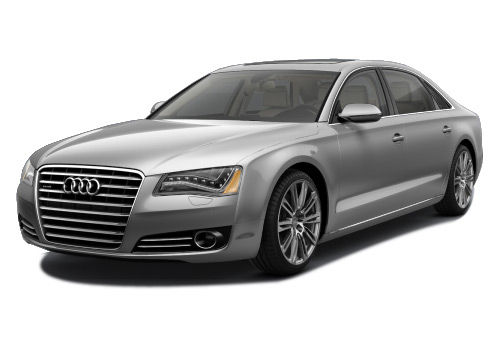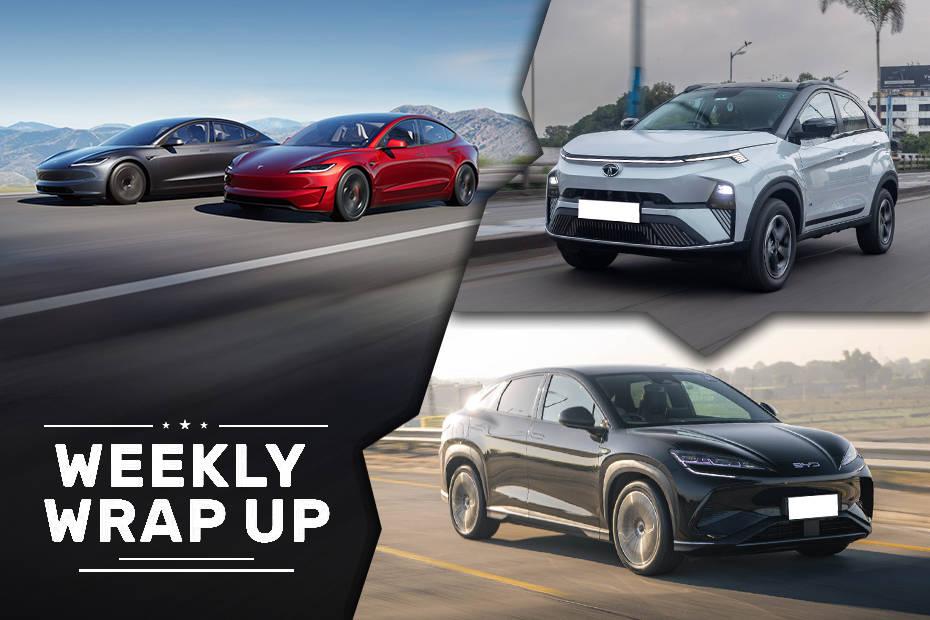Michelin Challenge Bibendum, the global summit dedicated towards sustainable mobility marks its 11th edition
Published On May 27, 2011 12:54 PM By Meenal
- Write a comment
The 11th edition of Michelin Challenge Bibendum was recently concluded in Berlin, held from May 18 to 22. Promoting the overall theme of cleaner, safer, more connected mobility, the event was yet another example of Michelin Group’s commitment to sustainable and safer road mobility. The purpose of the Michelin Challenge Bibendum 2011 is to bring together a broad array of stakeholders – from car lovers to decision makers – while also involving the general public, with the goal of making the sustainable mobility of the future more widely accessible. Flagged off by Michel Rollier, Managing General Partner, Michelin Group, the 5-day event was dedicated to the recently signed Global Road Safety Commitment by Michelin to support the Decade of Action for Road Safety, 2011-2020, which is actively promoted by the United Nations.

See More Audi A8 Pictures Read More on Audi A8
Speaking on the occasion Michel Rollier, Managing Partner of the Michelin Group said, “The spirit that guides the Michelin Challenge Bibendum is to show that the automobile’s capacity for improvement is alive and well and that road transport has a bright future serving society’s needs. We can and must reduce the gap between the scope of the challenges we face – which include energy, environmental and safety issues, as well as universal access to efficient mobility solutions – and the slow pace of decision-making processes around the world. Innovation and its organized deployment require close coordination between the public and private sectors. Let’s look to the future without fear, keeping a totally open mind with regard to all both local and global solutions. What’s truly important is not to put off making the tough choices required for everyone’s well-being. We’re counting on the experts’ discussions and the events in Berlin to help us take an additional step toward ensuring sustainable road mobility that is cleaner, safer and connected.”

See More Audi Q7 Pictures Read More on Audi Q7
Michelin Challenge Bibendum is the global summit for sustainable mobility. It’s the world’s only event that brings together car and truck makers, academics, equipment manufacturers, energy suppliers, research institutes, public authorities and nongovernmental organizations to forge a shared vision of tomorrow’s safer, cleaner transportation. Speaking at the event, Prashant Prabhu, President, Michelin Group AIM (Asia, India and the Middle East region), said “Highlighting the theme of Safer,Cleaner, and Connected, the 11th edition of Challenge Bibendum has been able to bring together like-minded individuals who are concerned about sustainable mobility. Michelin Challenge Bibendum is charting the way towards mobility that is more fuel-efficient, cleaner, and safer. He also added, “In a country like India, which is growing rapidly, the issues of climate change, energy security, local pollution, road safety and urban congestion are critical considerations for sustainable growth. By tapping global experiences and best practices, India has an opportunity to progress more rapidly by leapfrogging technologies, allowing the country to design and adopt a mobility plan best suited to its needs. To drive a radical shift to new technologies and new ways of looking at mobility, a real spirit of change is required. It is often best exemplified in emerging economies and India is no exception to the same.”

See More Renault Fluence Pictures Read More on Renault Fluence
Commenting on Michelin’s plan for growth in India, Mr. Prabhu said, “Michelin is committed to strengthening its presence in India as it augments Michelin’s capability to cater to the huge customer base in the country with its world-class, best engineered quality products.”Held at a single venue – Berlin’s former Tempelhof airport saw participation from 6,000 representatives from the worlds of politics, industry, science and the media to discuss sustainable road mobility challenges and solutions. The five days event also hosted 1,000 students, with a day of programs purpose-designed for them. For the first time – on May 21 and 22 – the Michelin Challenge Bibendum was open to the general public. And because road mobility has to be experienced to be understood, a range of practical, real-world activities were organised for the two days. These included a circuit for testing electric sports cars, an itinerary that recreates city driving conditions for assessing the performance of small city cars, tests of vehicles with the engineers who developed them, and a 300-kilometer eco-driving challenge that enables individuals to test their environmentally friendly driving skills at the wheel of an Audi A8 or a Citroën DS3. Working with other industry players to design the vehicles of tomorrow, Michelin rules out no areas of research and pursues all opportunities for innovation so that the materials challenge can be approached from all angles. During the event, some of the technology and new innovation showcased are:

See More Reva i Pictures Read More on Reva i
MICHELIN Active Wheel houses two engines. One is used to provide traction for the vehicle, delivering 30 kW of output power for a weight of only 7 kg and stores the kinetic energy generated by braking. The second engine ensures the suspension function: its actuators only need 3/1,000ths of a second to adapt the position of the wheel and the chassis. Of course, the impact of producing electrical energy has to be included when assessing the overall impact of the wheel and this varies greatly depending on the production system employed. In a very environmentally friendly package, Active Wheel is the optimal integration of four functions: engine, suspension, braking and tires.
These bi-modal vehicles represent a plausible alternative solution that combines the emissions-free, noise-free advantages of an electric powertrain with the extended range of an internal combustion engine. Renault and Michelin launched the Velroue project in partnership with public authorities and the French Institute of Petroleum/New Energies (IFPEN). Motorized wheels provide a host of benefits. Not only do they reduce the amount of electrical energy needed, and thus the size and cost of the battery, they also reduce the impact of the additional electric powertrain on the load volume. Michelin considers that city buses represent a natural opportunity for the deployment of technologies like the motorized wheel. In line with this objective, Michelin has developed the ElLisup project, which is managed by Irisbus/Iveco and financed by ADEME. The project’s purpose is to develop a hybrid bus and an electric bus, both of which can be charged quickly. More broadly, the goal is to promote electrification of the bus sector and demonstrate that this type of public transport is economically viable.The biggest challenge facing electric vehicles today is to deliver maximum range between two stops at the charging station. Meeting this challenge will play a determining role in the large-scale deployment of EVs. From this perspective, the fuel cell can make a key contribution. For the same weight as that of a battery, a fuel cell and its hydrogen fuel can propel an EV two to four times further. To develop this technology, Michelin is supporting the F-City H2 project, which uses a battery/fuel cell combination as an energy extender.
To encourage young talent and to showcase technological innovations at the student level at Challenge Bibendum, Michelin also played host to an eight member team from RV College of Engineering, Bengaluru who showcased a hybrid REVA at the rally during the event. Michelin Challenge Bibendum also acted as a platform to encourage India into the space of technological advances. For the first time Challenge Bibendum saw participation from educational institutes in India–from five leading engineering universities of India – BITS Pilani, NIT Trichy, Anna University, VIT Vellore and Delhi Technological University. Michelin also hosted a 2 member team of professor and student from each college to allow them to witness Challenge Bibendum and to interact with various stakeholders from the industry and in the process come face to face with challenges and opportunities in the area of sustainable mobility.
Read More on : Audi A8














